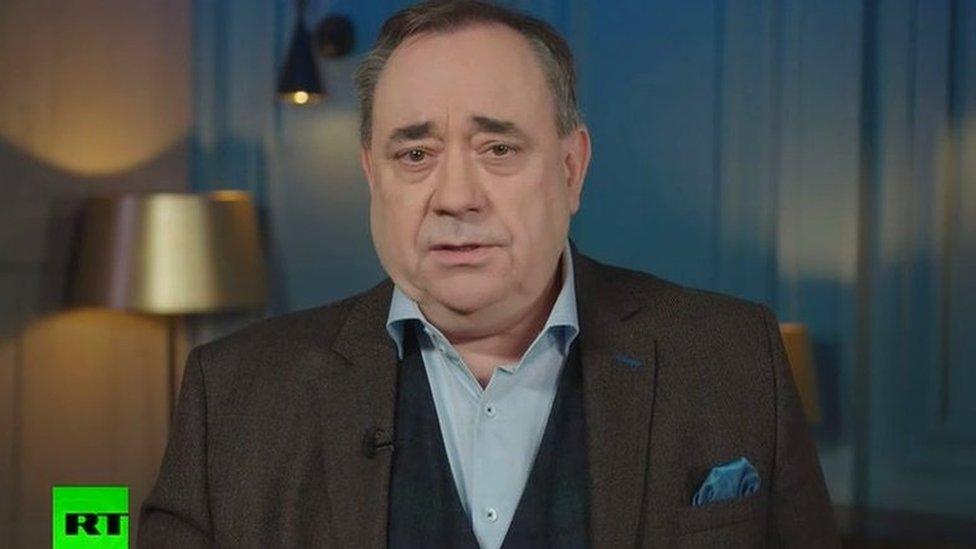Sturgeon calls for severe consequences for Russian assault
- Published
Nicola Sturgeon: Putin must feel wrath of the world
Scotland's first minister has called for the "severest consequences" for Russia's military assault on Ukraine.
Nicola Sturgeon described the Russian air strikes and border breaches as "appalling and horrific".
Ukraine says Russia has launched a "full-scale invasion" of what is Europe's second largest country.
UK Prime Minister Boris Johnson has announced "the largest and most severe" package of economic sanctions to target the Russian economy.
Ukraine has declared a month-long state of emergency as Russia said it had carried out air strikes on Ukraine's military infrastructure and border guard units - but said it had not targeted populated areas.
Russian military vehicles are reported to have breached Ukraine's border in the north, south and east of the country, including from Belarus.
At least seven people have been killed by Russian shelling, while another 19 are missing, Ukraine has said.
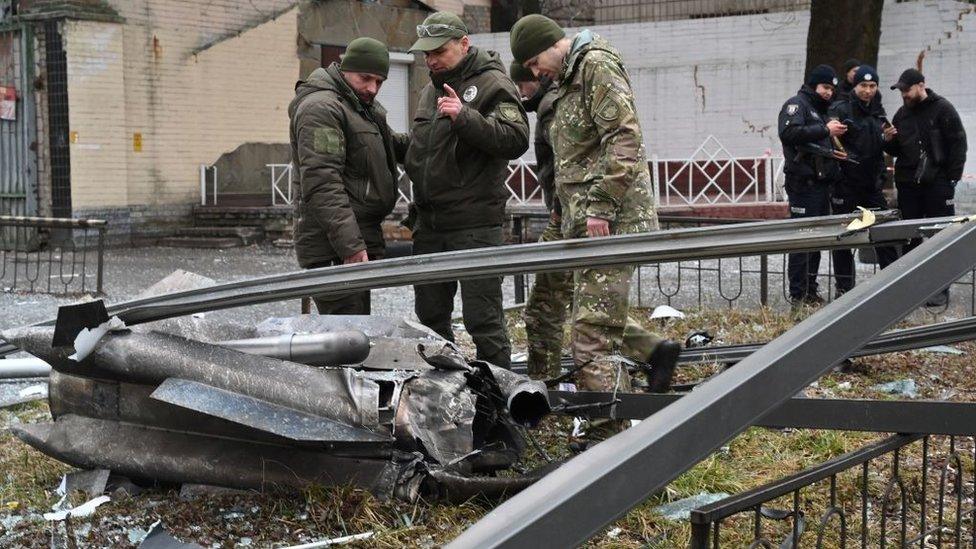
This shell landed in a street in Kyiv hours after Russia launched its attack
The Scottish Parliament unanimously passed a motion of solidarity with the Ukrainian people, after all party leaders voiced condemnation of Russia's actions.
Ms Sturgeon said Mr Putin must face the "severest consequences", with sanctions targeted against himself, Russian oligarchs, banks, energy and mineral companies.
She said the world "must now help and equip Ukraine to defend itself and resist Russian aggression", while encouraging "anti-Putin forces" within Russia.
She said: "This is a clash between oppression and autocracy on one hand, and freedom and democracy on the other. We must make sure that freedom and democracy prevail."
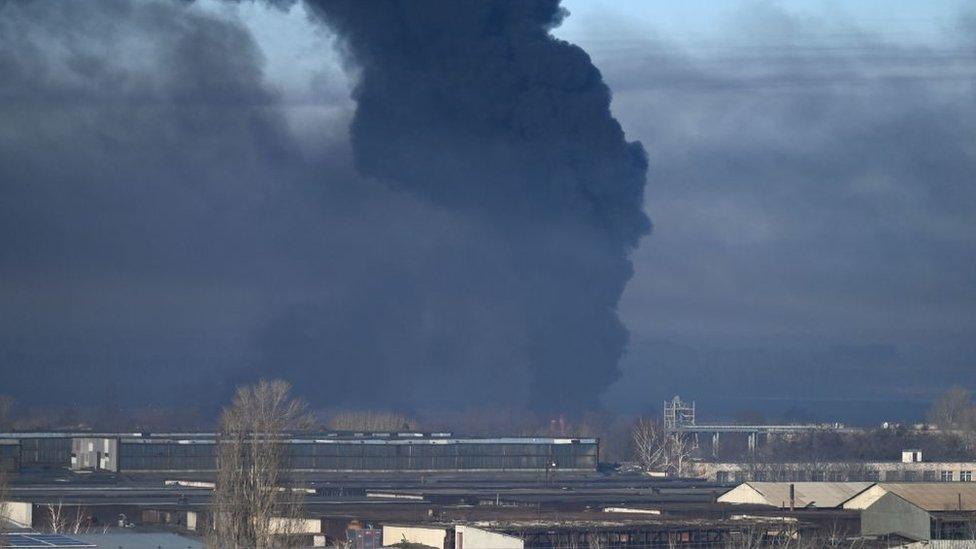
The military airport at Chuhuyev near Kharkiv was among those targeted
Scotland's other party leaders echoed Ms Sturgeon's comments, with Scottish Conservative leader Douglas Ross saying the world had woken up in a "far darker and most unstable place".
Labour's Anas Sarwar said Mr Putin should "pay a heavy price", while calling for "urgent humanitarian assistance against the horrors of war" for people in Ukraine.
And Lib Dem leader Alex Cole-Hamilton noted that Ukrainian capital Kyiv is twinned with Edinburgh, saying that "we must be prepared to offer all of those fleeing the conflict safe harbour in the towns and villages of Scotland".

Explosions are getting closer, I'm scared witless
Sean Cusick was speaking to BBC Scotland when he heard a tank approaching and ended the call
Sean Cusick from Glasgow, his wife and their two-year-old stepson are stranded in Ukraine with no way out.
The family are living near the Russian border in Kharkiv, where air strikes have destroyed the airport. They cannot afford food or rent and have relied on support from family.
They hope to scrape enough money together to travel to Poland and, eventually, the UK - but Sean said bureaucracy has prevented his Ukrainian wife from obtaining a valid passport or national ID.
Speaking to the BBC, Sean said: "I woke up to the house shaking and the sounds of distant thunder and explosions - I didn't know what was happening.
"The sounds are getting much closer, I'm getting exceedingly more terrified.
"Even though I'm scared witless, I'm not in any current danger that I'm aware of - but that can change in a matter of seconds."
Sean was forced to end the interview and go indoors as he heard the sound of a nearby tank.

Mr Johnson, in a phone call with Ukrainian President Volodymyr Zelensky, vowed the West "would not stand by as President Putin waged his campaign against the Ukrainian people".
In a televised address to the nation, the prime minister said Vladimir Putin had "unleashed war in our European continent without any provocation and any credible excuse", referring to the president as a "dictator".
He added: "Our mission is clear - diplomatically, politically, economically and eventually militarily, this hideous and barbaric venture of Vladimir Putin must end in failure."
Mr Johnson later announced the "largest and most severe package of economic sanctions that Russia has ever seen".
He said all major Russian banks would have their assets frozen and be excluded from the UK financial system.
And Russian airline Aeroflot will also be banned from landing in the UK.
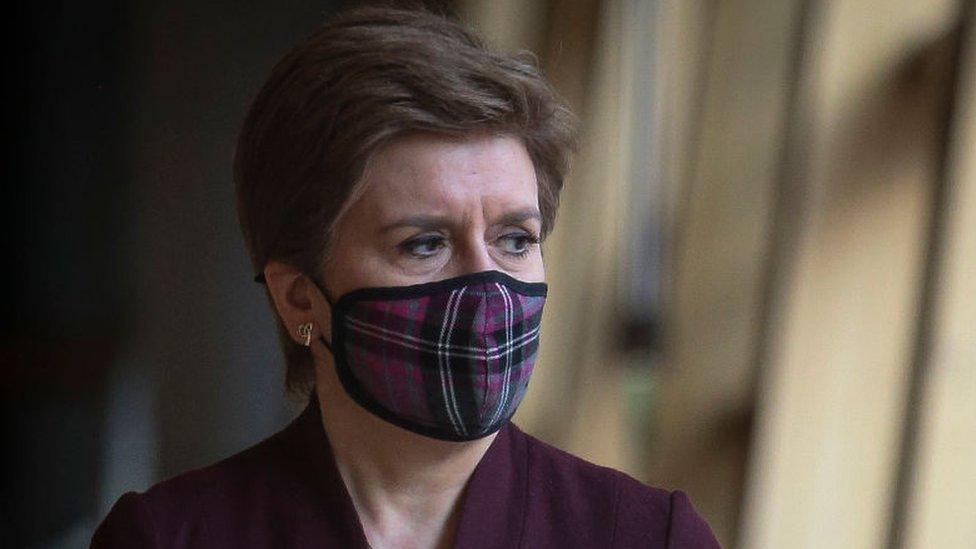
Nicola Sturgeon said Vladimir Putin should be hit personally by sanctions
On Wednesday, Ms Sturgeon met the acting consul general of Ukraine, Yevhen Mankovskyi, and Linda Allison, the chairwoman of the Scottish branch of the Association of Ukrainians in Great Britain.
In the wake of those talks she urged the UK to impose tougher sanctions against Russia, saying while there had been "some very tough rhetoric from Boris Johnson" this now needed to be "matched by action".
Meanwhile, former First Minister Alex Salmond has announced that he will be suspending his weekly TV show on Russian state broadcaster RT "until peace is re-established".
Ms Sturgeon had criticised her predecessor for continuing to host the talk show, saying she was "appalled", and urging him to "reflect" on matters.
The UK government has asked broadcast watchdog Ofcom to review the channel's licence to air in the UK in light of the crisis in Ukraine.
Mr Salmond has always insisted he has total editorial control and RT's deputy editor-in-chief, Anna Belkina, had earlier said she was sure the former SNP leader would not listen to "the inappropriate remarks of Ms Sturgeon".
The programme did not air in its usual slot on RT on Thursday morning, but was posted in full on the broadcaster's website and adverts for it continued to appear during rolling news coverage.
The weekly talk show is produced by Slainte Media, a firm set up by Mr Salmond and another former SNP MP, Tasmina Ahmed-Sheikh.
In a statement released on Thursday evening, Mr Salmond said: "The efforts of every single person should be to re-establish the peace.
"That certainly is our focus, and therefore Slainte Media have decided to suspend the Alex Salmond show until that can be secured".
WATCH: Footage from Ukraine shows explosions, a missile strike and a helicopter under fire
Meanwhile, supporters of Ukraine held a demonstration outside the Russian Consulate in Edinburgh.
The Church of Scotland has called on the UK government to work towards a ceasefire and "prepare a generous humanitarian response", including preparing to resettle refugees from the conflict and support neighbouring countries to respond locally.
Lord Wallace, moderator of the General Assembly of the Church of Scotland, said: "Our prayers are with the Ukrainian people who are now under attack and in fear of their lives."
- Published24 February 2022
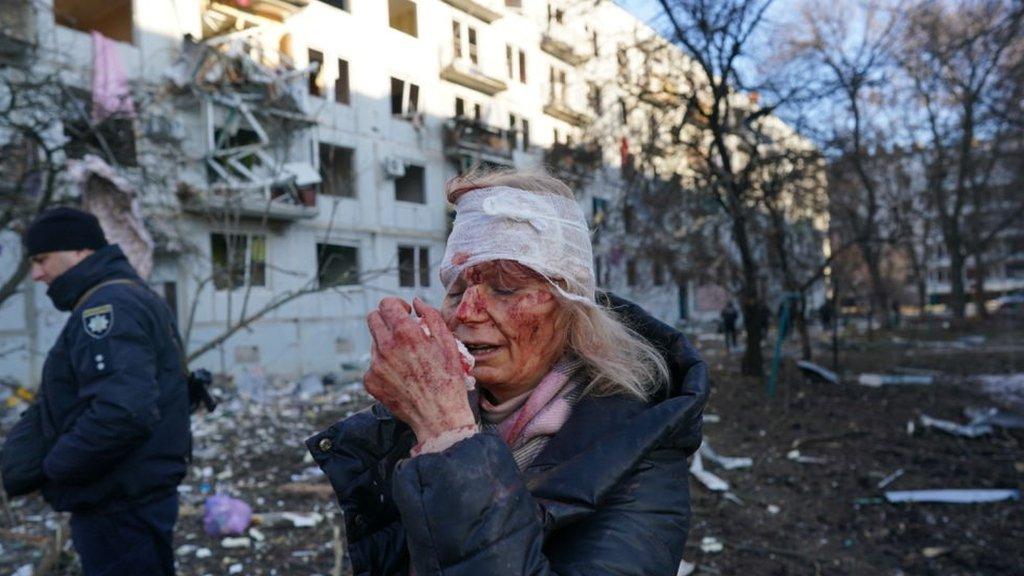
- Published24 February 2022
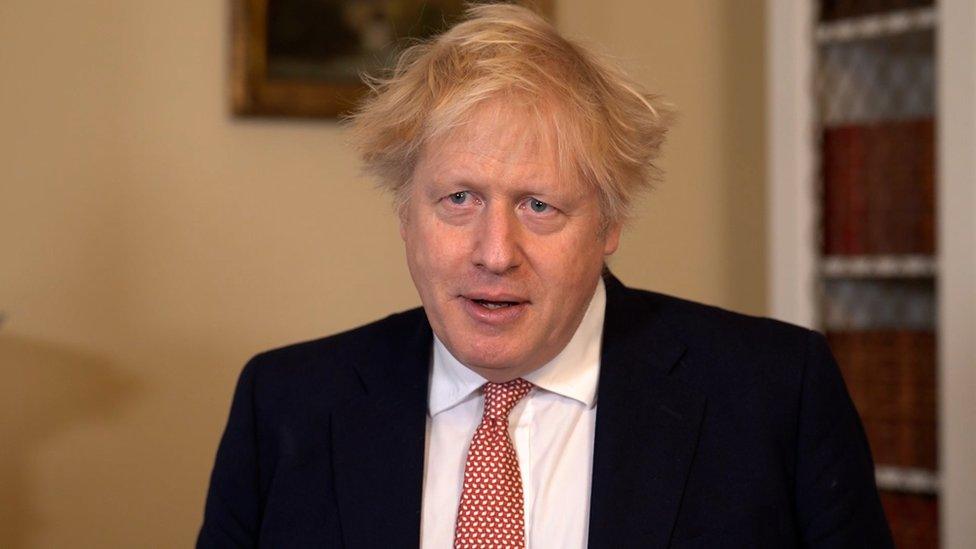
- Published23 February 2022
